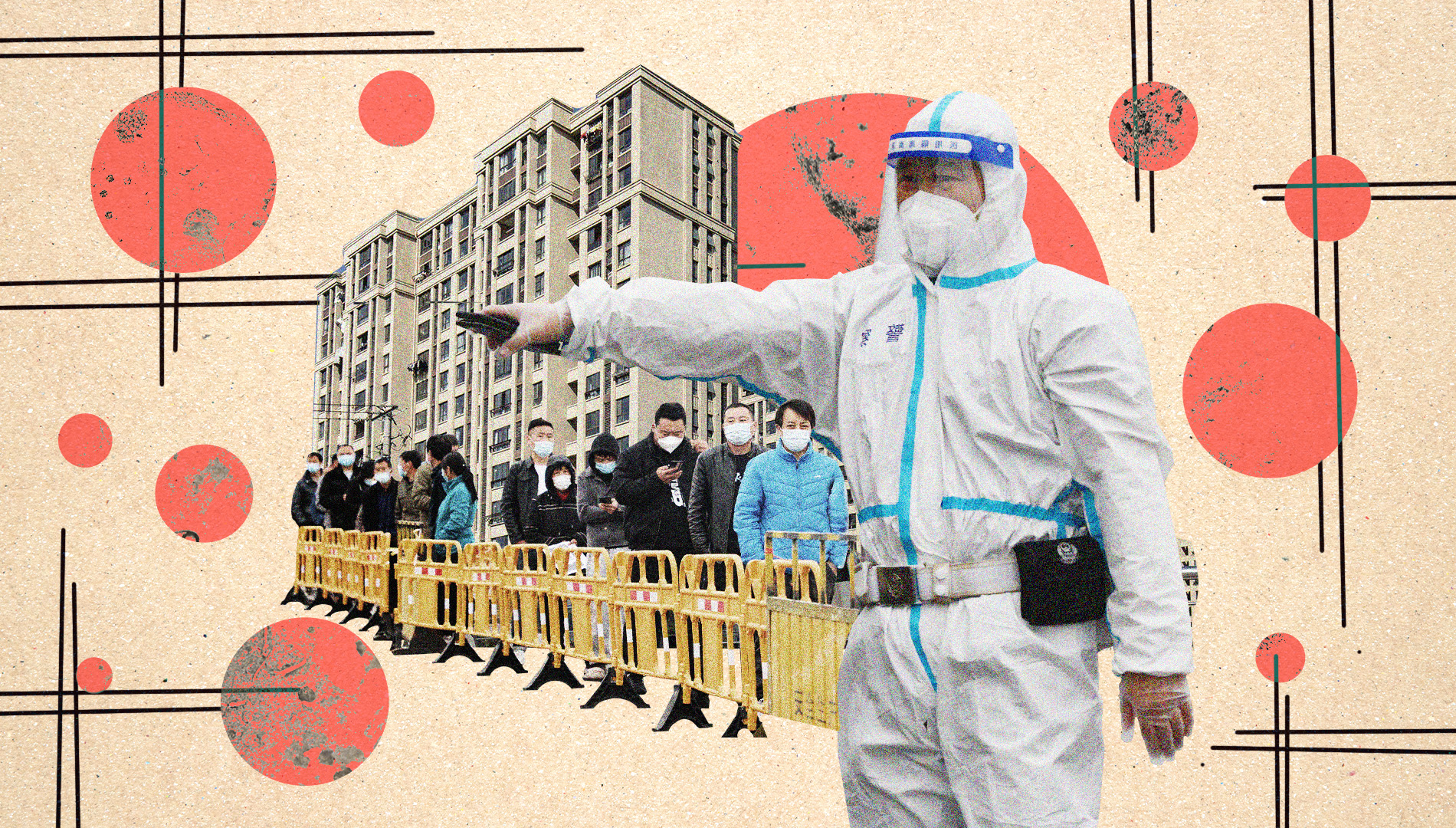The city is set to end lockdown Wednesday, but two months of stringent restrictions have taken a toll on the economy, public health and trust in the government.
rd to recover from the harsh lockdown
HONG KONG — Sasha Xu tried to get out of Shanghai weeks ago.
With lockdown looming in late March, as China’s most populous city struggled to contain the country’s worst coronavirus outbreak since the start of the pandemic, Xu secured a ticket for a train to her hometown in a neighboring province. But before she could get to the station, her gated residential complex was locked down.
Xu, 23, ended up spending six weeks confined to her 800-square-foot apartment and was only recently allowed to venture out into the complex grounds. She was furious at getting stuck, she said, and reading about other residents’ lockdown difficulties has only added to her distress.
“Sometimes, I avoid reading any news just for my mental health,” she said.
Shanghai has mostly eradicated cases outside quarantine, and it is easing some restrictions ahead of the two-month lockdown’s official end on Wednesday. But some residents complain their neighborhood committees have actually further restricted their movement for fear of a rebound in infections.
Even if the lockdown ends on schedule, its effects — on the economy, public health and trust in government — could last much longer.
Lockdowns in Shanghai and elsewhere this spring have taken a major toll on the Chinese economy, which analysts say may shrink in the second quarter. Speaking at a teleconference the government held on Wednesday, Premier Li Keqiang said that despite new stimulus measures, the economic difficulties the country now faces are “in some respects and to a certain extent greater than those experienced in 2020” when the pandemic began.
Though some manufacturing has been allowed to resume, global supply chain disruptions stemming from the Shanghai lockdown have affected everything from Tesla’s electric vehicles to the contrast dye used in CT scans.
Overseas business groups like the American Chamber of Commerce in China say the country’s sustained restrictions and lack of a clear exit plan have undermined confidence and created uncertainty.
“Our members feel that the business environment has become a lot less predictable, largely due to the pandemic and its related restrictions,” said Colm Rafferty, the group’s chairman.
Residents have cited the economic impact as one of many reasons the lockdown has affected their mental health.
As the Shanghai lockdown began this spring, local searches for “psychological counseling” on the Chinese search engine Baidu increased more than 250 percent compared with the same 30-day period a year earlier, according to Baidu Index. In a survey by Data-Humanism, a blog about data journalism, about 40 percent of Shanghai residents surveyed in mid-April reported having depressive tendencies in the previous two weeks of lockdown.
“Nobody was unaffected,” George Hu, president of the Shanghai International Mental Health Association, told NBC News.
Residents have struggled with anger, frustration and feelings of hopelessness, he said, as well as fears that their pre-existing mental conditions could be exacerbated by social isolation and lack of access to professional care.
“How many people died or suffered from a non-Covid condition as they couldn’t get the care they used to have, including for mental health?” said Hu, whose colleagues have themselves been driving around the city delivering medication to patients.
Chinese officials say their strict “zero-Covid” strategy, which has kept virus cases and deaths far lower than in the United States and other countries, is necessary to prevent the health care system from being overwhelmed. But that approach has been challenged by the highly contagious omicron variant of the virus.
Direct To Your Inbox
Get the latest breaking news and must-read articles from NBC News
Recent outbreaks across the country have led to lockdowns and other measures affecting hundreds of millions of people, although officials appear to be trying to avoid a full lockdown in Beijing, the capital, where there is a much smaller outbreak than in Shanghai.
Lockdowns early in the pandemic, like the one in Wuhan, were easier for residents to understand, Hu said, as there was little known about the virus or how to treat it.
But when the same policy was applied in Shanghai two years later, “the reasoning behind the lockdown did not make sense to many people,” he said, “and that causes psychological distress.”
A notice released by the local government early this month offered tips for protecting mental health and pointed to resources online, at mental health centers and by phone.
Some residents have been pushing back against continued restrictions, with videos circulating online of crowds arguing with neighborhood committees. Official social media posts celebrating Shanghai’s gradual return to normal life have also been challenged by online commenters who say nothing has changed for them.
“I’m still under lockdown, but you say the hustle and bustle is coming back. It’s a big joke,” said one comment on Weibo, China’s equivalent of Twitter.
In the wake of the lockdown, Xu said she had noticed greater mistrust toward the government.
“Many of my friends who used to be very patriotic now hesitate to unconditionally and fully support the decisions made by the authorities,” she said.
Though the lockdown has come as a shock to Shanghai, a cosmopolitan financial center, it could be forgotten relatively quickly, one resident said.
“Once it goes back to so-called normal, people will go back to their busy lives,” said the resident, 36, who asked to be identified only as Zhang so she could speak freely. “They will be like, ‘I have no time for this, I will do business, I will try to make more money.’”
But for Zhang and other residents with the means to move abroad, the lockdown has prompted them to consider their long-term plans.
“I definitely have less hope and I’m worried for the future,” she said. “I ask myself, what is my future going to look like here?”
The lockdown has also changed the calculations of many of Shanghai’s foreign residents.
Before the lockdown, Shanghai was “absolutely an incredible city to live in,” said a British man surnamed Green, who declined to give his full name for professional reasons.
Green, 34, who has lived in Shanghai for over a decade, said other foreigners had left the city or were planning to leave, because they couldn’t do their jobs or they worried about the impact of restrictions on their families.
“Some leave with the intention to come back, but all will wait and see,” he said.
Green is not planning to leave Shanghai at the moment, but he said he worried there could be another lockdown if the virus resurges.
“If that happens again I will make the hard decision to leave,” he said, “because mental health and physical health is everything.”




